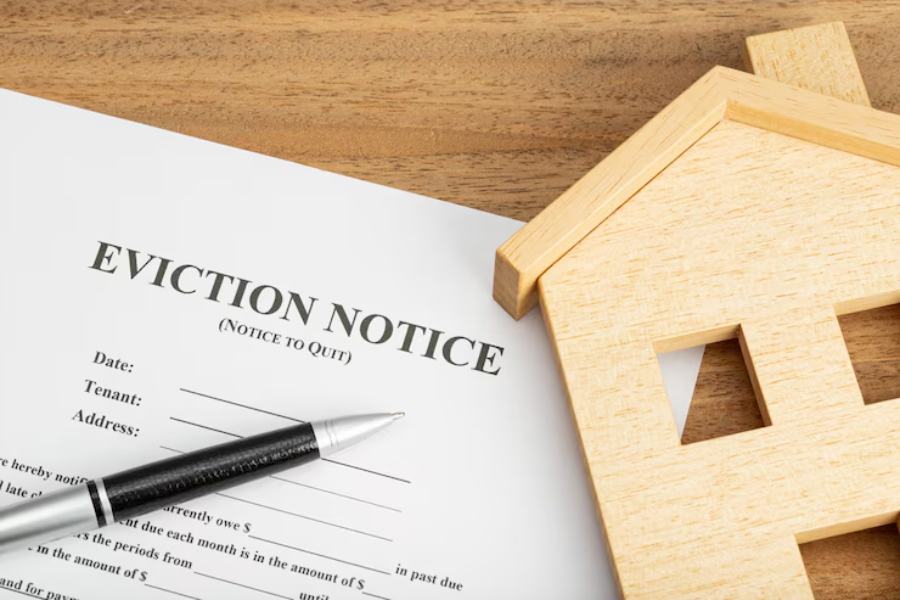Facing eviction can feel like your world is falling apart. Whether it’s due to missed rent, lease violations, or other disputes, the process of being legally removed from your home is daunting. Understanding what happens when you get evicted helps you prepare, respond appropriately, and recover quickly.
This article provides a complete breakdown of what eviction means, how it unfolds, and what to expect every step of the way. We’ll explore timelines, legal obligations, emotional tolls, and how to rebuild your housing stability. We’ll also explain your rights and options, giving you the knowledge to protect yourself and avoid common pitfalls. Whether you’re already in the eviction process or trying to prevent one, this guide is your one-stop resource.
What happens when you get evicted?
When you get evicted, your landlord files a legal notice, and you may be forced to move out after a court order. It damages your credit, affects future housing, and can stay on your record for years. You’ll need to act fast to secure new housing, negotiate with landlords, and possibly seek legal aid.
The Eviction Process Explained from Notice to Court Judgment
Eviction is the legal process by which a landlord removes a tenant from a rental property. It typically begins with a formal notice to vacate. This could be a “Pay or Quit” notice for unpaid rent or a “Cure or Quit” notice for lease violations. If the issue isn’t resolved, the landlord files an eviction lawsuit, known as an unlawful detainer.
Once filed, you’ll be served with court papers, including a summons and complaint. It’s crucial to respond within the time frame, usually five to ten days. Ignoring this could result in a default judgment, granting the landlord possession.
Next, a court hearing will be scheduled. During the hearing, both parties can present their arguments. If the landlord wins, the court will issue a judgment and a writ of possession. This document authorizes law enforcement to physically remove you from the property if you do not leave voluntarily.
From start to finish, the eviction timeline varies but often spans from a few weeks to several months. Throughout, you may accrue late fees, legal costs, and even damage your credit score. Understanding these steps is vital to managing your defense and planning your next move.
It’s also important to know that tenants have rights. Some states require mediation before a court hearing, and others offer emergency rental assistance. Never assume you have no options—explore them all before leaving your home.
Why Do Tenants Get Evicted?
Non-Payment of Rent
This is the most common reason for eviction. If tenants fail to pay rent on time, landlords have the legal right to start the eviction process.
Lease Violations
Breaking lease terms—such as having unauthorized pets, subletting without permission, or causing property damage—often leads to eviction.
Illegal Activities
If tenants use the property for illegal activities (e.g., drug use or selling stolen goods), landlords can immediately begin eviction without prior warning.
End of Lease Without Renewal
When a lease ends and the tenant doesn’t leave or sign a new agreement, the landlord can file for eviction to regain possession.
Health and Safety Violations
Creating hazardous living conditions that endanger others can be grounds for eviction under most housing laws.
What Happens After You Receive an Eviction Notice
Receiving an eviction notice can be overwhelming, but taking quick and informed action can help you avoid serious consequences. Here’s what you should do after receiving one:
• Review the Eviction Notice Thoroughly
Carefully read the notice to identify the reason for eviction, the timeline you have to act, and any actions you can take to resolve the issue.
• Respond to the Court Promptly
If the notice leads to a court summons, you must file an official response within the specified deadline—usually within 5 to 10 days. Failing to respond may result in an automatic judgment against you.
• Prepare for the Hearing
Begin collecting evidence such as payment receipts, lease agreements, and communication with your landlord. These documents can support your defense in court.
• Seek Legal Help
Look for local legal aid services. Many nonprofits provide free or affordable representation to tenants facing eviction.
• Attempt to Negotiate
Reach out to your landlord to see if they are willing to settle through a payment plan or agreement. Some may cancel the eviction if the terms are met.
• Make Plans to Vacate if Needed
If the court rules in favor of the landlord, follow the timeline to move out voluntarily to avoid forced removal by law enforcement.
Long-Term Consequences of Getting Evicted
Being evicted has ripple effects that go beyond losing your current housing. The eviction will likely be recorded in tenant screening databases, making it harder to rent in the future. Landlords commonly deny applications based on eviction history alone.
Your credit score might take a hit, especially if the landlord sent unpaid rent to collections. This can hinder your ability to get loans, rent other properties, or even secure employment in some cases.
Financially, the process can drain you. You may be responsible for court fees, outstanding rent, and moving costs. Finding a new place might require larger deposits or cosigners. Additionally, evictions are emotionally distressing. Stress, anxiety, and uncertainty about the future are all common.
Understanding these consequences helps underscore the importance of taking preventive measures early. Always communicate with your landlord, seek aid, and know your rights. Being proactive could save you from long-term damage.
How to Recover After an Eviction
Recovering after an eviction can be challenging, but it’s entirely possible with the right steps. Focus on rebuilding your stability and credit for a fresh start.
Rebuilding Your Rental History
After an eviction, finding a new place to live can be difficult, but not impossible. Seek out second-chance landlords who are willing to work with tenants who have prior evictions. Be transparent and provide references or proof of steady income to strengthen your rental application.
Improving Your Credit Score
Evictions can harm your credit, especially if unpaid rent was sent to collections. Focus on paying off any outstanding debts tied to the eviction. Consider setting up a payment plan with your former landlord and check your credit report for errors. Over time, consistent payments and responsible financial behavior can rebuild your score.
Finding Temporary Housing
If securing a lease proves difficult, look into short-term rentals or rely on support from friends and family. Emergency shelters or housing assistance programs can also offer temporary relief while you get back on your feet.
Legal Expungement of Eviction
Depending on your state’s laws, you might qualify to have the eviction removed from your public record. Courts may grant expungement if the eviction was dismissed or settled favorably.
Emotional Recovery
Eviction takes an emotional toll. Don’t hesitate to seek support from a counselor or join a community group that helps individuals recover from housing instability. Developing a clear budget and financial plan is also essential for long-term stability.
Conclusion
What happens when you get evicted is more than just knowing the law. It’s about navigating legal, financial, and emotional obstacles and emerging stronger. From receiving the initial notice to recovering your life afterward, every step requires awareness and action.
Proactivity is your best defense. Know your rights, seek help early, and plan ahead. With the right support, even eviction doesn’t have to be the end of your housing stability—it can be the beginning of a more secure chapter.
FAQ’s
Can an eviction be reversed?
Yes, an eviction can be reversed if you pay the overdue rent or correct the lease violation before the court hearing. Landlords may then choose to drop the case voluntarily.
How long does an eviction stay on your record?
An eviction typically stays on your public record for about 7 years. However, you may be able to get it expunged depending on your state’s laws and case outcome.
Do evictions affect your credit?
Yes, evictions can impact your credit if the landlord sends unpaid rent to a collections agency. This can lower your score and remain on your report for years.
Can I rent again after being evicted?
Yes, but you may face stricter screening, higher deposits, or require a co-signer. Some landlords specialize in renting to tenants with eviction history.
What help is available for tenants facing eviction?
Several resources, including legal aid clinics, nonprofit housing counselors, and government rental assistance programs, help you avoid or recover from eviction.








